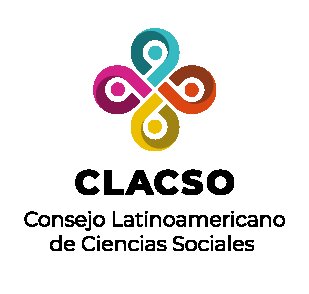Authors
Abstract
At the beginning of the twentieth century, the eugenics movement become popular in various parts of the world. Mexico, like many other Latin American countries, considered it appropriate to analyze the eugenic knowledge of the time and then apply it to the country’s population. eugenic knowledge of the time and then apply it to the country’s population. To achieve this, they considered that their main tool would be a scientific popularization magazine. The objective of this article is to analyze the main characteristics of the Eugenesia magazine and to link them with the direct effects it had on the promotion of eugenics in Mexico between 1930 and 1945, using a qualitative methodology, through a discourse analysis of the texts of the Eugenesia magazine. It was concluded that eugenics was easily promoted in Mexico, largely because of the racist and hierarchical logic that had been established in the country at that time, on the other hand, it kept the general characteristics of eugenics in other parts of the world, information was promoted without scientific support. information was promoted without scientific support.
References
Galton, F. (1892). Hereditary genius. McMillan.
Galtung, J. (2016). La violencia: cultural, estructural y violenta. Cuadernos de estrategia, (183), 147-168. https://dialnet.unirioja.es/descarga/articulo/5832797.pdf
Gobineau, J. A. (1937). Ensayo sobre la desigualdad de las razas humanas. Editorial Apolo.
González Vicen, F. (1984). El darwinismo social: Espectro de una ideología. Anuario de filosofía del derecho, 1, 163-176. https://dialnet.unirioja.es/descarga/articulo/1984749.pdf
Khel, R. (1941). Postulados al rededor de la higiene de base. Eugenesia, 2(20), 17-20.
Madrid Casado, C. M. (2015). Estadística, eugenesia y fundamentalismo científico. El basilisco revista de materialismo filosófico, (45), 5-31.
Mingol, I. C. (2018). Horizontes epistemológicos de la investigación para la Paz. En D. E.
García-González (Ed.), Enfoques contemporáneos para el estudio de la paz (págs. 45-68). Puebla: SEP-CONACYT.
Mukherjee, S. (2016). El gen: una historia personal. Debate.
Murray, C., & Herrnstein , R. (1996). La curva de la campana . Free Press. Nueva York.
Organización de las Naciones Unidas. (1963). Declaración de las Naciones Unidas sobre la eliminación de todas las formas de discriminación racial. https://acortar.link/IUkZNn
Orozco Gómez, M. L. (2010). La influencia del darwinismo en iberoamérica. Revista de investigación multidisciplinar, 1, 29-49. https://acortar.link/dkJ706
Rulfo, J. F. (1940). Genética de la Herencia como problema de la eugenesia. Eugenesia, 1(9), 2-15.
Saade Granados, M. (2004). ¿Quiénes deben procrear? Los médicos eugenistas bajo el signo social. Cuicuilco, 11(31), 1-37. https://www.redalyc.org/articulo.oa?id=35103104
Saavedra Mota, A. (9 de Diciembre de 1939). Editorial . Revista . Ciudad de México, México.
Saavedra Mota, A. (1940). Acerca de la personalidad humana. Eugenesia, (40).
Schoijet, M. (2005). La recepción e impacto de las ideas de Malthus sobre la población. Estudios demográficos y urbanos, 20(3), 569-609. https://acortar.link/DwqfWi
Stern, A. (2000). Mestizofilia, biotipología y eugenesia en el México posrevolucionario: hacia una historia de la ciencia y el Estado, 1920-1960. Relaciones: Estudios de historia y sociedad, 21(81), 59-90. https://www.redalyc.org/pdf/137/13708104.pdf
Sociedad Mexicana de Eugenesia. (abril de 1941). Código de moral eugénica. Eugenesia.
Sociedad Mexicana de Eugenesia. (1941). Informe sintético de actividades desarrolladas por la Sociedad Mexicana de Eugenesia. Eugenesia.
Soutullo, D. (2003). Actualidad de la eugenesia: las intervenciones en la línea germinal. Ludus vitalis: revista de filosofía de las ciencias de la vida, 11(20), 189-212. https://www.ugr.es/~eianez/Biotecnologia/eugenesia.htm
Suárez y López Guazo, L. L. (2005). Eugenesia y racismo en México. Universidad Nacional Autónoma de México.
Suárez y López Guazo, L. L. (1999). La influencia de la sociedad eugénica mexicana en la educación y en la medicina social. Asclepio, 51(2), 51-84. https://asclepio.revistas.csic.es/index.php/asclepio/article/download/310/306
Trejo Peña, F. (1939). La esterilización eugénica en medicina forense. Eugenesia.
Vasconcelos, J. (1948). La raza cósmica: misión de la raza iberoamericana. Editorial Porrúa.
Wade, P. (2000). Raza y etnicidad en Latinoamérica. Editorial Abya-Yala.

 PDF (Español)
PDF (Español)
 FLIP
FLIP






























